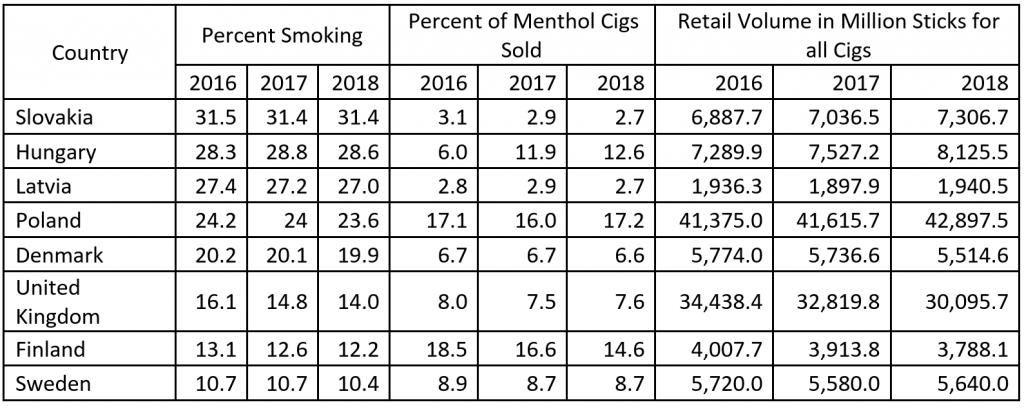Last November, Massachusetts became the first US state to ban the sale of menthol cigarettes. And in February of this year, the House approved a bill to eliminate the sale of these cigarettes at the federal level. Governor Andrew M. Cuomo has launched a campaign to enforce menthol bans in New York State under the broader #NoVapeNY hashtag. Such state and federal efforts ostensibly aim to curb smoking and vaping rates among US youth, particularly given last year’s EVALI epidemic. Yet many researchers point out that the use of menthol cigarettes is disproportionately high among US ethnic minority groups, especially African Americans. Democratic Congresswoman Yvette Clarke noted that nationwide menthol bans would have little effect on white smokers, while “black smokers could face even more sweeping harassment from law enforcement if the hint of menthol smoke can justify a stop.”
In recent days, hundreds of American cities have faced what many have deemed the worst outbreak of urban riots and uprisings since the 1960s. For a nation still in the thick of the COVID-19 pandemic, it is perhaps now more important than ever that we recognize the effects of public health on our civil unity. Just as the novel coronavirus has ravaged the health of American citizens and shone the spotlight on endemic and entrenched social injustice, so the growing debate on menthol bans is crucial in the fight for health, peace, and equality. As we look together towards a future that seems murkier than ever, reviewing the work of other governments and public health bodies will help to inform our country’s next steps.
On May 20, the European Union banned the manufacture and sale of menthol cigarettes within its 27 member countries. In the EU, menthol cigarettes represent about 5% of total cigarettes consumed by volume, and they generate approximately US$11 billion in annual sales. The Foundation for a Smoke-Free World is monitoring the effects of this ban, and will continue to do so, as our experts keep their gaze fixed on a smoke-free future. The table below represents a breakdown of menthol cigarette use by EU country.
Table 1: EU Countries exhibiting highest levels of menthol cigarette consumption

Source: Euromonitor.com
As you can see, the prevalence of menthol cigarettes varies by region. Likewise, according to surveys conducted prior to the EU menthol ban, awareness and acceptance of this new legislation varies by region. Many EU citizens and researchers have noted that the ban took place with little public debate. They further argue that it unfairly targets minority groups such as women and members of the black community, who are more likely to consume menthol cigarettes worldwide.
And yet there is solid science to suggest that a ban of menthol combustible cigarettes would ultimately improve public health. In her 2017 study, Jody Sindelar noted that “a ban on menthol combustible cigarettes would produce the greatest reduction in the use of combustible cigarettes across the flavor bans.” Such bans could lead smokers to switch to e-cigarettes, or to quit altogether. Although it is unquestionably important to develop international legislation in the good of public health, as we move forward it will be crucial to develop implementation strategies that do not put already vulnerable communities in even greater danger. With this in mind, the Foundation has begun a series of surveys analyzing the behaviors of adult smokers in several EU countries before and after the menthol cigarette ban. To receive more information on this ongoing investigative work, please complete the form here.
© 2023 Foundation for a Smoke-Free World. All rights reserved.